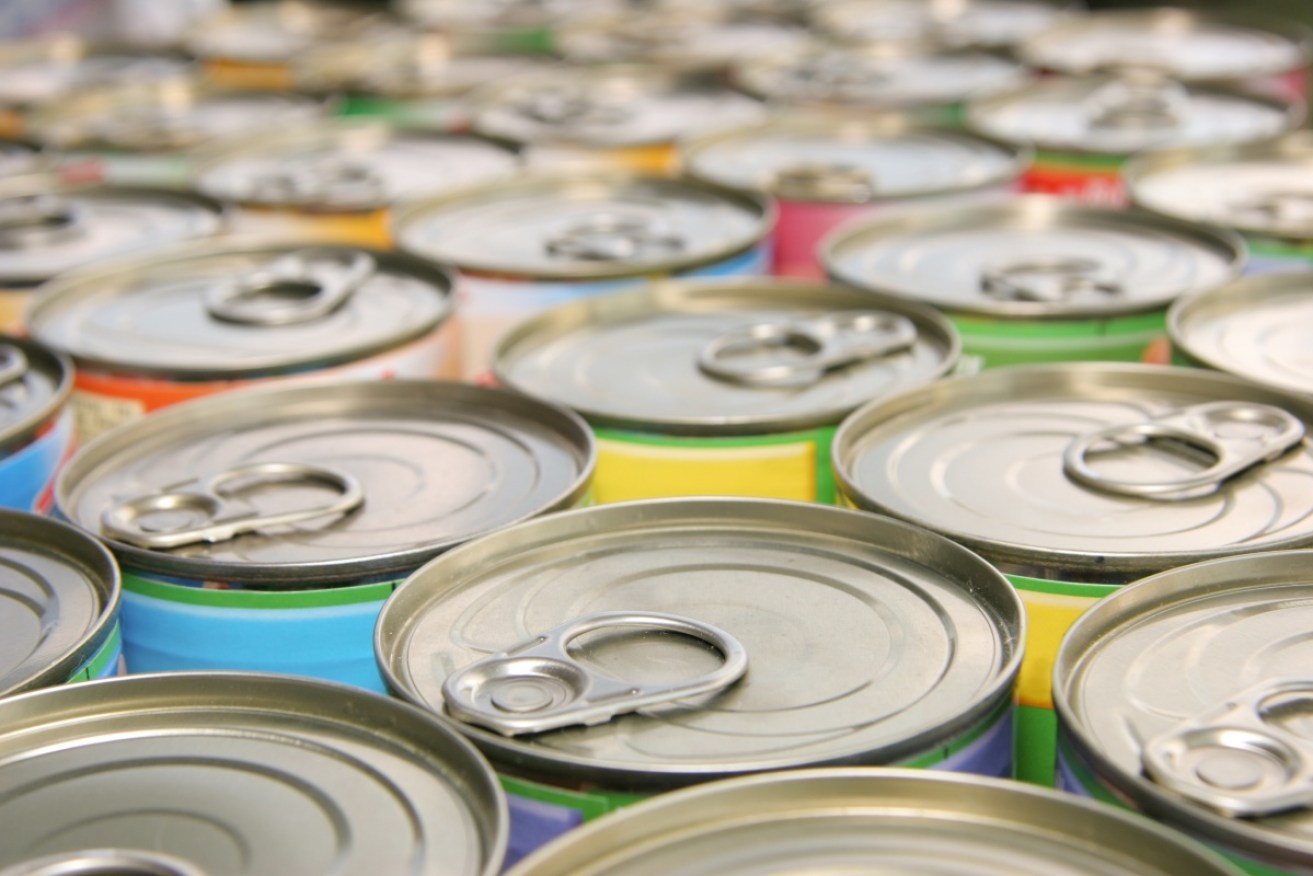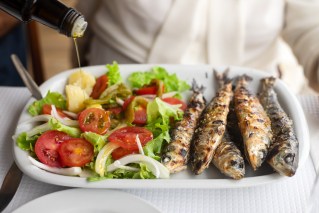The secrets to cooking a tasty, easy and nutritious meal with canned food


Packaged food prices won't drop and might get more expensive. Photo: Getty
Recent news about a flip-flop deal between supermarket giant Woolworths and Victorian cannery SPC Ardmona has thrown the spotlight on tinned food.
As a kid I loved Sunday nights because we got to choose what we had for dinner.
The choice was SPC baked beans or tinned spaghetti. Remember the jingle?
“For hungry little human beans.”
That dinner made everyone happy, not least mum, who had to make ends meet on a tight budget.
No thinking, no chopping. It was an easy dinner. Affordability is a major factor for shoppers choosing canned foods.
Researchers from Michigan State University found the cost of canned vegetables can be as low as 50 per cent of the cost of frozen and 20 per cent of the cost of fresh. Plus, canned foods have a shelf life of up to 5 years.
Avoiding soft vegetables at the bottom of the fridge you’re saving both money and food wastage.
Convenience is a huge plus too. Canned foods are in season all year round.
Nutritional value
We hear about the importance of eating “fresh” food for the maximum nutritional benefit, and for many fresh doesn’t mean canned . However “fresh” can be misleading.
According to nutrition expert Dr Victor Zeines, from the documentary Food Matters, food travels hundreds of miles and takes at least a week before it gets to us.

Canned fruits are picked at peak ripeness and packed straight away. Photo: AAP
“How much nutrition value are you getting from food that is at least five days old? If you are lucky you are getting maybe 40 per cent of what you need.”
Canned fruits and vegetables are picked at the peak of ripeness and canned within hours, locking in food nutrients without the need to add preservatives.
Cans are also a total barrier against light, which causes food to deteriorate. However, canning often involves high heat, so fruit and vegetables can lose nutrients and water-soluble vitamins B and C.
Some brands add salt and thickeners, so it’s important to read the labels. And the taste? Well, that’s a personal matter.
Here is a weeknight dinner menu in the can:
Puttanesca Pasta
Chop garlic cloves thinly and sauté in olive oil.
If you please, omit this step and toss one can of tinned tomatoes, rinsed and roughly chopped pitted black olives, a few rinsed and chopped anchovies, a dollop of tomato puree (optional) into a saucepan. Simmer vigorously for 5 minutes.
Season with salt and pepper and chilli flakes. Stir through cooked pasta.
Veggie Soup

You can make this soup using all canned ingredients. Photo: Getty
This one starts with a tin of tomatoes, added to a saucepan.
Then add drained and rinsed white beans or chickpeas, carrots and green beans into the saucepan and warm.
Season with salt and pepper and fresh or dried oregano.
Add left over cooked rice or pasta.
Nicoise Salad
On a bed of fresh cos lettuce, add tinned drained baby potatoes, green beans, olives and tuna.
Add boiled eggs and drizzle with olive oil and lemon juice.
Frittata

Omelettes are an easy canned food meal. Photo: Getty
Combine 6 beaten eggs and half a cup of milk. Pour into 20cm baking dish.
Add 500g vegetables – peas, carrots, beans, and asparagus.
Season with salt and pepper. Sprinkle with cheese.
Cook in a pre-heated oven on 180 degrees for 25 to 30 minutes.
Vegetarian shepherd pie
Combine a tin of tomatoes and drained and washed lentils. Season with salt and pepper. Toss in dried herbs like oregano or fresh parsley.
Transfer to a baking dish. Mash or slice tinned potatoes and cover the lentil mixture.
Season with salt and pepper. Cook in oven under griller until potatoes are golden and crispy and warmed.
Canned food tips
1. Don’t put open cans in the fridge. Transfer remaining ingredients to an airtight container.

The canned food aisle can be your friend. Photo: Getty
2. Choose cans that do not contain BPA – a chemical that can leach into foods from the cans’ lacquer.
3. Store cans at room temperature. Never heat cans.
4. Check the labels for added salt, sugar, oil and thickeners and water. Some tinned foods contain more water, oil or brine than others.
5. Don’t buy dented, rusted, scratched or damaged cans.
6. Wash and recycle all cans.








